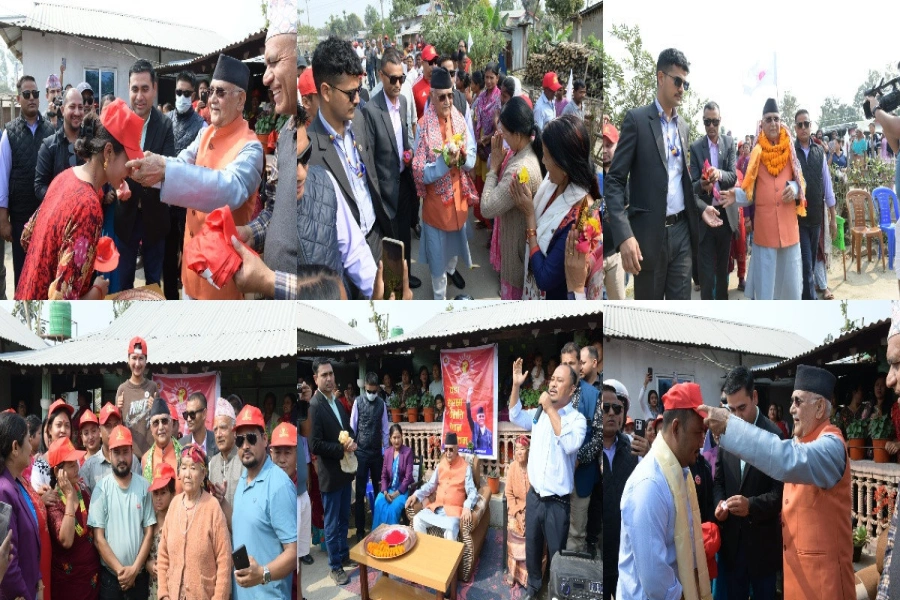KATHMANDU, Dec 18: Government officials, civil society members and representatives of the Nepali diaspora have highlighted the need to introduce appropriate policies to facilitate investment and use of expertise gained by Nepali diaspora.
Addressing a panel discussion “Bridging Borders:Nepali Diasporas in the US “ on the sideline of the launch of US diaspora report in the capital on Tuesday, they also argued that the Nepali diaspora abroad can also be used to lobby to promote the interests of Nepal and the Nepali people.
Managing Director of Nepal Republic Media Limited Sambridhi Gyawali said that the Nepali diaspora in the US and elsewhere can be used to lobby for loss and damage funds to tackle the adverse impacts of climate change in Nepal and promote economic growth through Foreign Direct Investment (FDI).
Peacekeeping as a source of Nepal's soft power

While stressing that encouraging investments in IT and healthcare is crucial, she said that the collaboration among media, policymakers, and think tanks like IIDS can shift the focus from passive remittances to active investments, unlocking the diaspora's full potential.
Gyawali also highlighted the need to promote agri-tech as agriculture is now largely driven by technology to unlock economic potentials in Nepal. She argued that instead of focusing on bringing back Nepali diaspora home, all should focus on bringing in people with required expertise and skills in Nepal regardless of their nationality or the country of origin.
Vice President of Non-Resident Nepalis’ Association (NRNA) Rojina Pradhan Rai highlighted the NRNA's role in reconnecting the diaspora with their roots. Established 20 years ago, the NRNA envisions a “Prosperous Nepal” and has contributed NPR 100 billion in sectors such as tourism, IT, healthcare, and hydropower, alongside support for disaster relief, reconstruction, and education in Nepal.
Joint Secretary at the Ministry of Foreign Affairs (MoFA) Lakshuman Khanal, emphasized the importance of such reports in driving policy interventions and improving welfare services for the Nepali diaspora. He described the diaspora as “unpaid ambassadors” who strengthen Nepal's global connections and represent its identity and culture worldwide.
While noting ongoing efforts to digitize consular services and deploy mobile missions to better serve Nepali communities abroad, Khanal also highlighted the ministry's role in promoting economic diplomacy through business connections, investments, tourism promotion, market access, and technology transfer.
Senior Fellow at IIDS Akhilesh Upadhyay stressed the need to engage Nepal’s migrant population, describing them as reservoirs of goodwill and wealth, contributing 25% of the national income through remittances. He emphasized that students are key national assets and should be institutionally engaged to enrich the country. He also pointed out the need to flip the narrative to view migration as an opportunity, not merely a brain drain.







-1200x560-1771928761.webp)






























